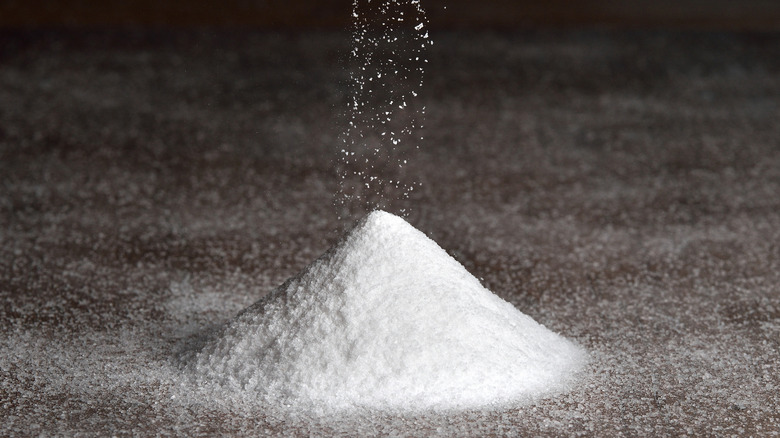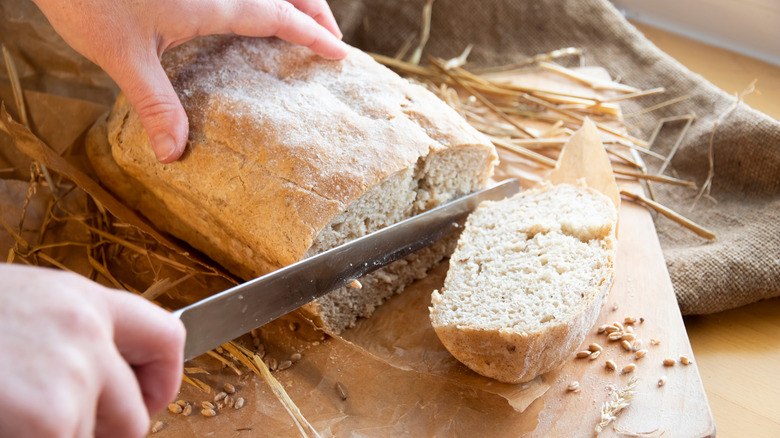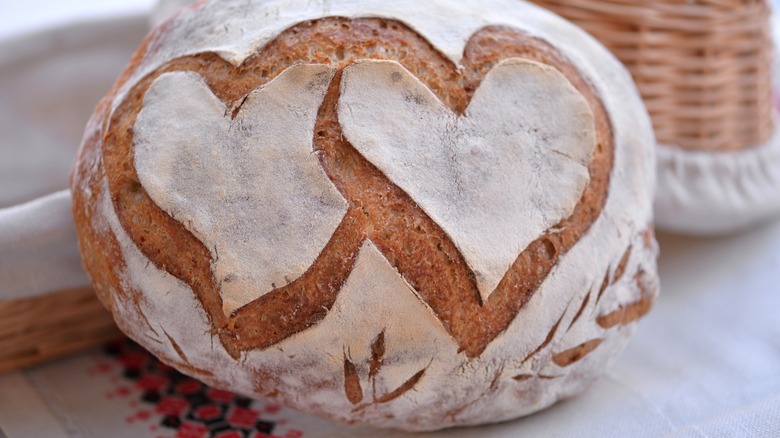Salt Is More Important To Making Bread Than You Might Expect
Salt is one of the foundational ingredients for baking, and it does more than you might expect. While it is possible to bake bread that doesn't have any salt in it, the final product might be quite different. There are already enough ways to ruin a simple loaf of bread.
Salt, flour, water, and yeast are really all the ingredients you need to make a basic bread dough. According to King Arthur Baking, those tiny white crystals that get sprinkled into your dish are doing a lot more for your bread than just adding flavor. The most important thing that salt does is to help control the rate of fermentation. When yeast is added to flour and water, it feeds off of the natural sugars present in the dough. It then produces gasses like carbon dioxide that give bread its structure and flavor. Salt slows down the yeast's sugar consumption and regulates how fast fermentation takes place.
How salt affects bread
Adjusting fermentation has several effects on a loaf of bread. Without salt, yeast is allowed to consume sugars as fast as it likes. King Arthur Baking notes that reduced rising times may seem like a benefit, but it will ultimately produce an inferior bread. The unsalted dough will become too sticky to work with, and a faster fermentation will mean less flavor. Slower fermentation adds more depth to the flavor profile of any bread. Rampant fermentation also means that there will be no leftover sugar in the final loaf. This will produce a final crust that is dull. A proper crusty bread needs those sugars to caramelize on its surface to give the glossy, golden-brown finish that marks a successful bake.
Salt also affects bread beyond fermentation because it helps gluten strands to develop. Gluten is the protein that gives bread its structure and traps in the gasses released by the yeast while the bread rises. The bread loses its form more easily without well-developed gluten strands present. Leaving out salt can create a loaf that is too limp to shape and rise properly.
Last but not least, salt just helps bread taste better. Salt brings out more flavor in everything it touches (via Fine Cooking). It's the reason why it gets added to sweets, cakes, and other non-salty dishes. Salt isn't added to bread to make it taste saltier, but to make it taste more like bread.
Ways to reduce salt in bread
There may be some who want to leave the salt out as a dietary measure. Reducing salt intake has been shown to reduce the risk of heart-related illnesses after all (via World Health Organization). King Arthur Baking suggests bakers reduce salt by half to help those who choose to eliminate some of the salt in their recipes.
King Arthur Baking recommends their Tuscan bread (Pane Toscano) recipe as a good salt-less alternative. Bread in the Tuscany region of Italy has been traditionally made without salt for centuries (via Eataly). King Arthur's recipe also comes with a few tips, like spraying the loaf with water for a crustier bread, to make up for the lack of salt.
They also recommend using dried herbs in place of salt to add some flavor back into any doughs that come out tasting bland. This doesn't fix all of the problems that come from baking without salt, but it will at least help with the taste.


